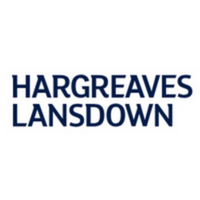How open banking and pensions dashboards will transform employees' financial lives
Back then
Things change fast. How we looked after our money back in the year 2000 when the Millennium Eye was opening and reality TV shows first hit our screens was incredibly different.
Back then we used bank branches, we still paid for things using chequebooks and we were far more reliant on the 32,000 cash points dotted across the country.
The way we saved was different too. Individual Savings Accounts (ISAs) only launched in April 1999 and the first tax year saw just over 9 million people rush to shelter their savings from the taxman.
Today, over 22 million people have an ISA. This may be why employers are increasingly looking to offer access to ISAs through the workplace.
Pensions were covered by 8 different rule books back in 2000 and defined benefit pensions were still offered through many employers - not just reserved for Public Sector workers. Stakeholder pensions hadn’t yet launched. These were the precursor of modern day pension plans and helped bring pension charges down to more consumer-friendly levels.
Personal management of our finances has come a long way in the intervening period, spurred along by the rise of investment platforms that allow people to hold their pensions and investments all in one place with greater control and visibility. These were in their infancy in 2000, but now they’re commonplace and an integral feature of financial services provision in the UK.
This ISA boom coupled with the flip from defined benefit to personal pensions was the first stage of the money management revolution. Yet the second wave is just about to break, flooding us with easier access to information and a greater ability to achieve financial wellness.
Opening up – first came banking
In January 2018 open banking was born. The largest 9 banks had to start supplying our data to any regulated firms we asked them to. The idea is that improved data sharing will revolutionise how we manage our money, with the potential to view all of our bank accounts and credit cards in the same place. You’d be forgiven for wondering what all the fuss is about; only a handful of apps have been developed so far. However, behind the scenes firms are beavering away to get their tech ducks in a row with a whopping 114 firms now having been granted an open banking license. The fact that only 33 of these firms are traditional banks or building societies proves that it’s new companies lining up to provide innovative ways of helping us manage our finances.
We’re expecting the next generation of apps to be able to instruct your bank to make payments on your behalf, where currently they’re really just allowing us to see what we’ve got and what we’ve spent.
Recently we’ve seen the development of cash savings platforms which allow you to move your accrued savings from bank to bank at the click of a button. Not getting round to the paperwork is no longer a reasonable excuse for failing to make your cash work as hard as you do.
Open everything?
Our pensions are also about to get the ‘open’ treatment, although not to the same extent as our banking data. The Government have given the green light for pension dashboards, which would let us view all our pensions in one place. The potential for this is enormous. People have an average of 11 jobs in a working life, meaning 11 accumulated pension pots. Keeping track of that little lot is hardly likely to have people clambering to stay on top of their retirement planning, so anything that makes this easier is welcome.
We may not have full usability any time soon, but this is a big stride forwards.
With cash and pensions opening up, it doesn’t take much to imagine this expanding to wider investments, like including the 22 million ISA accounts.
How it impacts employees
Easier access to our savings, investments and pensions will transform employee behaviour. We can expect a far greater awareness of finances in the years ahead. Employees of the future will know where their pension is invested, how much debt they have, if they’ve paid off their credit card, and if they’ve got enough cash stashed away for a rainy day.
The switch to more personalisation will put employees in direct control of their finances using their mobile phones. We know already that this will mean employees logging on to see their company pension value on the commute - taking the benefit package outside of the working environment. The most popular time among HL clients to view and manage their pension is between 8am and 9am and 5pm and 6pm as they look to pass the time on the commute. The potential here is endless.
The age of more savvy savers is upon us and employers that recognise this and tilt their benefit packages accordingly will give themselves a head start. Financial education, wider workplace savings and mobile access to workplace pensions and savings are already available.
With open banking growing and pension dashboards given the green light, 2019 looks to be the year when engaging with our finances becomes increasingly important.
How employers support their staff through this will define how they tackle the financial wellness agenda.
The author is Nathan Long, senior analyst at Hargreaves Lansdown.
This article is provided by Hargreaves Lansdown.
Supplied by REBA Associate Member, Hargreaves Lansdown
Welcome to HL Workplace - savings & investments your employees can understand, engage with, and value.







